Rosh Hashanah 2018/5779
Good yom tov. It's pretty awe inspiring to be looking out over this crowd. I've been President for just a couple of months now. In some ways it seems much longer and in most ways it feels like I'm just getting started. I’m originally a Brooklyn boy, my wife Margie and I have been part of the congregation for almost 19 years, and my kids David and Naomi grew up here, and we were part of the small but mighty Belmont contingent, although we’re in Waltham now. I've been around leadership at Isaiah for 7 years, first as Brotherhood President, then as VP of Jewish Living, and most recently as VP of Admin and Communications. And, and as I look around the room I see lots of familiar faces, a lot of them smiling, at least so far. For me it is mostly about the people.
Based on my limited experience, I am finding that writing a Presidential Rosh Hashanah talk has been a very worthwhile thing to do. So much so, that I decided to do it multiple times. And as the Erev Rosh Hashanah service began last evening I found myself on page 16 reading these words: “Taking comfort in your promise that I am always free to change, released from staleness and routine, let me know the joy of beginning again”. So, I went home last night and did just that. Hopefully I am closer to hitting the mark this time, and at least I will have lots of material for future Bulletin columns (inside joke for other past Presidents who may appreciate that concept). Anyway, time to be serious.
So, why are we here, today, in this place?
It’s an overcast day in Lexington, summer is winding down, fall is fast approaching, kids are back in school, vacations are mostly done, hopefully not forgotten. But here we sit, surrounded by family and friends, cut off (mostly) from the internet and the outside world and the routines of our lives. And what is our business today? It is not a mundane sort of business that we pursue, but something other. It is about taking stock of who we are and what we have done, as a pre-requisite to our asking for forgiveness of each other and atonement from God, and maybe from ourselves. It is about being aware of our mortality, and at the end looking ahead to the possibilities of a new year.
One of the central themes of this sacred time of year is that of t’shuvah, which is often translated as repentance, but is more correctly defined as turning or returning. So, as we have lived our lives this past year and have strayed from a righteous path, we have the opportunity now to return to that path and try to get it right in the coming year.
And how can we get it right this time, when we couldn’t before? At a teaching session during our recent Selichot service and again in her sermon last night, Rabbi Perlman talked about the concept of a growth mindset. The idea is that we each have to realize that we have the capacity to change and grow, that we are not limited by who we are and who we have been, and that this realization is a necessary first step to our developing into a better version of ourselves. I am reminded of the light bulb joke, about how many psychiatrists does it take to change a light bulb, where the punch line is, “only one, but the bulb has got to really WANT to change”. Except in this case it is not about the wanting, but in the realization that change is even possible.
I am new to this President thing, but now and also during past leadership roles I find myself thinking a lot about change, wondering how to make it happen for an organization like ours, or how to respond to it. Our congregation is fundamentally strong, but is not perfect. We think of ourselves as being innovative, and continually trying to improve ourselves, and being willing to experiment, and take risks, and hopefully learn from our failures and build on them. But there is a certain inertia about an organization like ours, which can often make it harder to do something new and be willing to leave the old behind, in a similar way that the fixed mindset that Rabbi Perlman talked about might hold us back as individuals. And all the while the world continues to change around us, and our congregation and staff and clergy grow older, and gen x-ers and millennials come to us with different attitudes about how to practice their Judaism than their parents did, and technology changes everything, and speeds up the pace. And change, whether we try to make it happen, or whether it happens to us, is not just a switch that gets flipped, and then we move forward, but is a process that we all go through before we can accept and embrace it, and being conscious of and managing those transitions is just as important as planning for the change itself.
So just as we are here on this day and in this time thinking about the ways we must change ourselves to become that better version, a lot of the work of our leadership is about making change happen in the congregation, to move us toward the better version of our communal selves. Taking stock of the state of the congregation, I look at where we are and see a work in progress, with lots of changes underway.
Why are we here, at Temple Isaiah?
Several weeks ago, we did an exercise with the new Board, asking the questions “Why did you join Temple Isaiah”, and “Why are you here now”. As I listened to people's responses, and thought about my own, I was struck by how important first impressions are, and how experiences of being welcomed and made to feel like you belong can make all the difference in the world.
Our own story had to do with our checking Isaiah out when my older son was around nine, and our daughter was around two. We walked in the building and immediately bumped into someone my wife knew from the hospital where she worked, who was very active in the Temple at the time and happened to be in the building that afternoon. And we had a meeting with and immediately connected with Daniel Gropper, who was Assistant Rabbi at the time, which was shortly before Rabbi Yales’ death. But the clincher for us was at a Friday night children's service that we went to shortly thereafter, when one of the girls who was my son's age immediately latched on to our two year old Chinese daughter, and sat on the floor holding her on her lap. At one point between songs she looked back at us and asked, "is she adopted?", and we said yes, she was. And she said, "that's special, I'm adopted too". And we were sold.
Other stories people told had similar themes of welcoming and connection. At the Board meeting Cantor Doob told one about a family who was just becoming a new member this summer, did not really know anyone yet, but whose daughter was up at Eisner. A few phone calls were made and emails sent, and it was discovered that an Isaiah teen was her group leader and another girl from Isaiah was in her bunk. So very quickly she was made to feel like she belonged, and as a result I imagine she had a very different experience at Camp than she would have otherwise, as she will when the Temple year starts. So welcoming, which is something we work on and try to do well as a congregation, can be very powerful.
As leaders, we sometimes focus inward, and often about things having to do with governance, or management, or finding volunteers, or money. Are we getting the best deal on snowplowing, are our clergy and staff fairly compensated and is their insurance coverage right. And yes, we are interested in seeing that the Temple runs well, and that we continue to find volunteers to help with the work that needs doing, and that we continue to talk about the importance of supporting our community financially. But most of us are here because of different concerns. How can I ensure that my kids grow up Jewish, where is my community now that the kids are off in the world, how do I cope with a dying parent, or spouse, how do I find others willing to work with me on issues that I care deeply about, etc. The answer to the question “Why are we here at Isaiah” should touch on those types of things. And listening to your answers about that is very important.
But one of the things I was also struck by when we talked about why we stay at Isaiah, was that our reasons are constantly changing, as we change. We joined Isaiah initially for our kids, but at the stage we are at our kids are mostly out in the world, and the things that are top of mind for us are very different than they were. We are all at different stages and are looking for different things, and one of the challenges for us is to recognize that fact and make sure everyone has an entry point that matches where they are. And we have done a better job in some areas than others; we have worked very hard to build and maintain a dynamic community of young families whose children have ways to stay engaged from the time they are tots all the way up through high school. But we still have work to do to respond to what some of our adults need, as their nests empty out, or as they look to retirement and beyond, and that is an area that I hope that as leaders we will try to make some progress on.
But Lexington is just a little corner of the world. So why are we here, in this country, enjoying a lifestyle and degree of freedom unprecedented in human history? My grandparents, like many of yours, came to this country from Europe in the 1920’s. My grandfather’s brothers and sisters made it out of Poland, either to this country or to Israel, but none of the rest of his family, and none of my grandmother’s relatives, or my other grandparents’ families, survived the shoah. So, I’m here because this country represented a chance for my family to survive as Jews in the world when that was perilous.
There is a proverbial expression, attributed to the Chinese, “May you live in interesting times”. And I fear that we are living in interesting times, and that the opportunities we have had to dream an American dream are less available to others who present themselves from countries that some considerable to be less desirable, or others who find ways to enter our country when our doors are not opened for them. At the Board some months ago, we heard from the group of congregants who are working to support the effort to provide sanctuary to individuals who seek it, and as a Board we approved the request to be a named a level two sanctuary congregation, supporting our sister church in Bedford who is currently providing sanctuary to a woman in the midst of an effort to prevent her deportation. And I wonder if part of the reason we are here in this country will require us to take a bigger stand to support the dreams of those others, and what the cost might be to us for doing that. And I wonder if I, and we, will find the strength to take that stand, if the times call on us to do so.
So finally, why are we here, as Jews, and as human beings on this planet? One of the moments that has stayed with me during my leadership journey happened in 2013 when visiting scholar Rabbi Larry Hoffman was asked a question about whether he was worried about synagogues in the future. His answer was a challenge about whether synagogues could move beyond being just providers of programming that keeps people busy, but instead have something to say about the really deep questions concerning what life is all about, about why we are here.
Our Why Isaiah exercise with the Board was a mini version of the larger one we did previously. Two years ago, we welcomed Rabbi Larry Hoffman a second time, to work with our Board to articulate our vision for Isaiah, and then use it as a lens to focus our efforts to realize it. Our Shema statement, “Deepening Lives, Inspiring Purpose, Together” is a statement partly about who we are, but more importantly about who we aspire to be. Our V’ahavta statement, which attempts to flesh out our Shema, talks about intellectual striving, spiritual awe, moral courage, social justice, inclusion, and relationships, among other things. But our Shema too is a work in progress; if I were to ask our Board members, or each of you, the question, “What are the 3 most important things we are working on to make sure we are living our Shema”, I am not sure what sort of answers I would get although I am absolutely sure the answers would not be the same. So right now we are talking with the Board about our goals, and about having the goals we agree on be aligned with our Shema and then be the drivers of our planning and budgeting.
But however imperfect our process, our Shema includes ideas of meaning, and purpose, and community that are central to who we are, or who we aspire to be as human beings and as Jews. So, at this time of year, as we are surrounded by our family and friends, and through prayer and reflection think about why we are here, and the path that we are trying to return to, some of our answers might well be found within these walls, and with each other, and with the words of our congregational Shema.
I am excited and humbled to be starting down my own path of leading this congregation for the next two years. I wish you and your families a good and sweet year. L’shana tova tikatevu.





